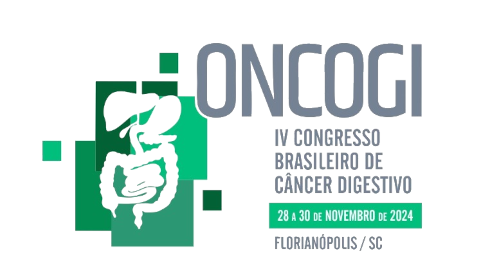Dados do Trabalho
Título
PIPAC and laparoscopy cytoreduction on peritoneal carcinomatosis: A systematic review of the main indications and prognosis
Introdução
Patients with intestinal cancer (colorectal, appendiceal, and small bowel) and peritoneal carcinomatosis (PC) have a poor prognosis, and because of that new treatment are studied to control the disease and provide a better overall survival for those patients. Pressurized Intraperitoneal Aerosol chemotherapy (PIPAC) is a new drug delivery method for local treatment in patients with PC. Prospective data are scarce, since reported experience is still limited and evaluation of treatment response remains difficult.
Objetivo
Demonstrate the effectiveness and uses of PIPAC on the treatment of peritoneal carcinomatosis
Método
This systematic review of published literature was carried out according to a predefined protocol, studies published in the last 10 years were identified through an electronic search of the US National Library of Medicine (MEDLINE), strategy used: (PIPAC) AND (Peritoneal Carcinomatosis OR Peritoneal Metastasis). The title and abstract of each study was examined for relevance with full text being obtained for all potentially relevant studies. Studies were included regardless of design, with both trials and observational studies being eligible for inclusion.
Resultados
Studies show that patients in palliative care who presented high volume of ascites and high level of carcinomatosis could benefit from PIPAC, since the procedure was mostly well tolerated and safe, and patients who received 2 or more PIPAC procedures had decreased and stable ascites volumes and an overall survival of 8-12 months after the first PIPAC procedure. However, there's still no data that proves the benefit of PIPAC associated to cytoreduction as a curative procedure, since there's still uncertainty of an accurate staging and evaluation of peritoneal carcinomatosis index laparoscopically and adequate cytoreduction, compared to Hiperthermic Intraperiotenal Chemotherapy that is still the gold standard in these cases.
Conclusão
PIPAC offers a treatment option for patients in palliative care with PC, since its a safe and well-tolerated procedure and Ascites production can be controlled in patients with intestinal cancer. Further studies are necessary to document the role of PIPAC as a therapeutic alternative associated with cytoreduction.
Área
Neoplasias Peritoneais
Autores
DENISE PADILHA ABS DE ALMEIDA, Lucas Albuquerque Mendonça Vaz, Inácio Pereira Aguiar Jr, Amanda Lira Santos Leite, Flávio Rodrigues Teixeira Filho , Alex Albuquerque Lins Barbosa, Julia Quintiliano Bomfim, Barbara Araujo Nascimento, Antônio Vinicius Barros Martin, Aldo Vieira Barros
